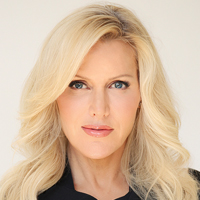Editor’s note: Kimberly Foss is a longtime columnist with Rethinking65. To read more of her articles, click here.

Any of us with children knows that there’s not much we wouldn’t do to help them, to keep them safe, and to give them everything we possibly can to help them become successful in life.
As they get older, decisions about their welfare become more and more complex, moving from considerations of diet, sleep, keeping up with schoolwork, and maintaining a safe and supportive environment to encouraging more autonomy, developing critical thinking skills, setting and achieving goals, and acquiring the traits needed to make their own way in the world.
But it’s not unusual for adult children to face challenges with “adulting” skills. In fact, a recent survey by Savings.com found that nearly half of U.S. parents with a child over 18 are providing some or all of the child’s financial support. And lest you think that this is limited to parents with kids still in college or trade school, think again: A USA Today survey of parents of 22- to 40-year-olds found that 65% of were still providing financial support for their children.
Here’s an even more sobering fact: About a third of those surveyed by USA Today said that helping their adult kids was placing a financial strain on them. In the Savings.com survey, a majority (58%) said that providing support was placing their own financial security at risk. As further corroboration, consider that data from Pew Research indicates that, while 64% of respondents believe young adults should be financially independent from their parents by age 22, only about 24% of them actually are.
Critical Conversations
Clearly, there’s a gap between expectation and reality, in terms of adult children achieving “escape velocity” from their parents’ financial support. And there’s an even more troubling trend toward parents putting their own financial health at risk for the sake of children who should be able to make it on their own steam.
As financial advisors, we should realize that many of our clients could well be in a similar situation to that of these survey respondents. Advisors are also in a unique position to be able to counsel and guide clients toward outcomes that best serve their financial interests. In fact, doing so can be an important part of placing the clients’ interest foremost, in keeping with our fiduciary responsibility of care.
But we also know that these can be tough conversations. Even though we’re working to benefit our clients, our guidance can be perceived as a judgment on their parenting abilities, on their children’s character, or some combination of both. Yet when we realize our clients are acting in a way that could be harmful to their own interests, it’s our job to have an honest conversation that might lead to improve the situation.
‘Put Your Mask on First’
One effective metaphor I’ve found is one I borrowed from the airlines: “Put your mask on first.” We’ve all sat through the safety briefing, and we know that for those traveling with children, in the event of cabin depressurization, the adult should mask up first, then turn to the child and help them. The reason is obvious: If I pass out from lack of oxygen, I’m not going to be able to help my child stay safe.
I explain to my clients that, in most cases, the best thing they can do financially for their children is to ensure their own financial security, especially in retirement, because then their children will most likely never have to worry about the financial burden of taking care of them. In other words, jeopardizing your financial future to support your adult children could result in “financial asphyxiation —not enough resources for anybody.
Is Helping Ever Okay?
Of course, there are times when providing a little boost for adult kids is appropriate. I’ve written previously, for example, that helping adult children purchase their first home can provide a valuable leg-up toward financial security as long as proper boundaries and expectations are in place at the outset. And certainly, when medical emergencies or other unexpected events occur, the financial support of parents can help adult children regain their footing and keep moving forward.
Yet as financial counselors and advisors, we can help clients design and implement parameters that can prevent temporary assistance from turning into permanent expectations.
We do need to alert our clients about one potential problem: when “emergencies” become a lifestyle. The operative concept we should instill in our clients is, “We can help you temporarily.” The important caveat here is that none of these events should become a pattern. For example, the child who just can’t find the “right” job and is therefore serially unemployed may need to learn how to hang onto some job — any job — with consistency, rather than coming back to Mom and Dad to “tide them over.”
Maybe the most important question our clients need to ask themselves is, “How will this gift help my child progress toward independence?” If it helps them get or stay in a better job or moves them toward some other important goal, it might be considered an investment in the child’s future. If it merely perpetuates their ability to keep getting by without taking on appropriate responsibility for themselves, we should probably advise them against doing it.
I encourage clients to set up some realistic expectations with their adult children, and then stick to their guns to make sure the expectations are met. If they don’t want to turn the money spigot off all at once, we can help them develop some gradual requirements that, over time, lead to getting the kids “off the payroll.”
The important thing is to establish fair boundaries and expectations, and then to hold to them. And along the way, we can provide objective help and support as their financial advisor, because we are committed to the client’s financial wellbeing, not to making sure their kids continue to enjoy a safety net.
Learning to Fish
The fact we must get across to our clients who are putting themselves in a financial hole by supporting adult children is that continued handouts to those who are legitimately capable of taking care of themselves is ultimately harmful to the person they are trying to help. They are handing out fish, instead of teaching their kids how to use a rod and reel. As fiduciary financial advisors, we need to help them focus on empowering their children, rather than enabling them.
Kimberly Foss, CFP®, CPWA, is a senior wealth advisor with Mercer Advisors, practicing in the Sacramento Valley area. The opinions expressed by the author are her own and are not intended to serve as specific financial, accounting or tax advice. Mercer Global Advisors Inc. is registered with the SEC and delivers all investment-related services. Mercer Advisors Inc. is a parent company of Mercer Global Advisors Inc. and is not involved with investment services. Click here for a full disclaimer.







